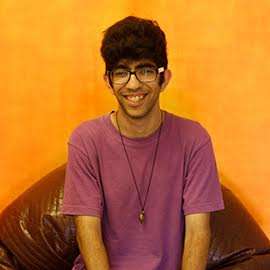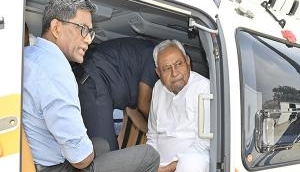India's jugaad: Modi's demonetisation brings back the ancient barter system

The demonetisation seems to have developed another side effect to it. It's brought back the
barter system. Yes, that old system, sans currency, where one exchanges one good for another, or trading goods as a means of payment.
Some people have gone on to the barter system to purchase essentials. Government has fulfilled one promise - dragging India to the Vedic age
— jairaj singh (@JairajSinghR) November 13, 2016
The barter system, introduced by Mesopotamian tribes, at least as far as history can tell, dates back to 6000 BC. Bartering was very popular in the 1930s during the Great Depression, when there was an acute lack of cash, much like in India today.
On the evening of Tuesday, 8 November, Prime Minister Narendra Modi announced that the 500 rupee and 1,000 rupee notes were becoming illegal tender. This was an effort to clean up black money.
Overnight, 86% of cash become useless and suddenly, everyone was scraping for change. In the midst of all of this, citizens of India came up with other methods of paying for the goods they so desperately needed. Here's an example:
With the cash crunch going, I am going back to stone age.
— AbTak56 (@WillyBhonka) November 12, 2016
Exchanging Bhendi with atta from my neighbors :D
#Surgical #BarterSystem
Exchanging one item of food with a neighbour for another because there is no cash to go to market and buy it. As a colleague put it, we must truly have returned to Ram Rajya.
But the bartering, in current times, is evidently not limited to goods of low monetary value.
In other news, interesting gossip overheard. Apparently a sofa cum bed sold for gold ring because no cash. Can't verify, but juicy gossip.
— Vidyut (@Vidyut) November 12, 2016
The possibilities are endless. One of my colleague's aunt used a vegetable seller as an ATM in Janakpuri. The aunt paid the sabzi wala's BSES electricity bill of Rs 1,100 and got cash in exchange. The sabzi wala must have accumulated some cash because people were buying vegetables in small amounts and paying with 100 rupee bills.
Another woman recharged her sabzi wala's mobile phone for some veggies. And to pay for his auto ride, Gaurav Munjal bought his driver 5kg of rice via a mobile transaction.
Just bought veggies by recharging sabzi wale bhaiya's phone. Yay barter economy. #DeMonetisation
— Vidya (@VidyaKrishnan) November 12, 2016
Day 2 in Bombay with no cash - no ATMs working. Paid the autowalla 5kgs of rice from a store. Long live barter system. pic.twitter.com/uWtejp60AM
— Gaurav Munjal (@gauravmunjal) November 13, 2016
For those who don't Ola, Uber, this driver has a solution. Swipe your card for fuel and you go cash free.
Barter system with cab driver. "Aap card se mera diesel bharwadijiye, main aapko airport drop kar dunga". #CurrencyExchange
— Padmaja (@padmajasreeni) November 12, 2016
As the Arun Shourie parody account says, none of us are shocked by this development:
The way economy handled by clueless FM, not to be shocked if we again go back to barter system once Rajan departs! https://t.co/hzO8eumpUZ
— Arun Shourie fαи (@FeignShourie) May 22, 2016
While demonetisation has inconvenienced the middle class, been applauded by the privileged and has led to hunger and death for the not so privileged, it has most undoubtedly brought out the jugaadu in every Indian. As evidenced by the barter system.
Somebody was asking on Twitter as to what an Xbox console would fetch him, and the answers ranged from cows to cupboards to food supplies to a vacation in the hills. I mean, this barter system may not help the economy, but it sure has opened up some interesting possibilities.
The only question to ask yourself before surrendering yourself to the system, do you trust your fellow citizen, also in a desperate need?
If people cannot depend on cash, as is the case today, then along with mobile wallets, the barter system might just fully take off. In fact, we may even see the return of public bartering. Gather around in a field with your items and barter till you get what you want.
First published: 15 November 2016, 12:20 IST





![BJP's Kapil Mishra recreates Shankar Mahadevan’s ‘Breathless’ song to highlight Delhi pollution [WATCH] BJP's Kapil Mishra recreates Shankar Mahadevan’s ‘Breathless’ song to highlight Delhi pollution [WATCH]](https://images.catchnews.com/upload/2022/11/03/kapil-mishra_240884_300x172.png)

![Anupam Kher shares pictures of his toned body on 67th birthday [MUST SEE] Anupam Kher shares pictures of his toned body on 67th birthday [MUST SEE]](https://images.catchnews.com/upload/2022/03/07/Anupam_kher_231145_300x172.jpg)






